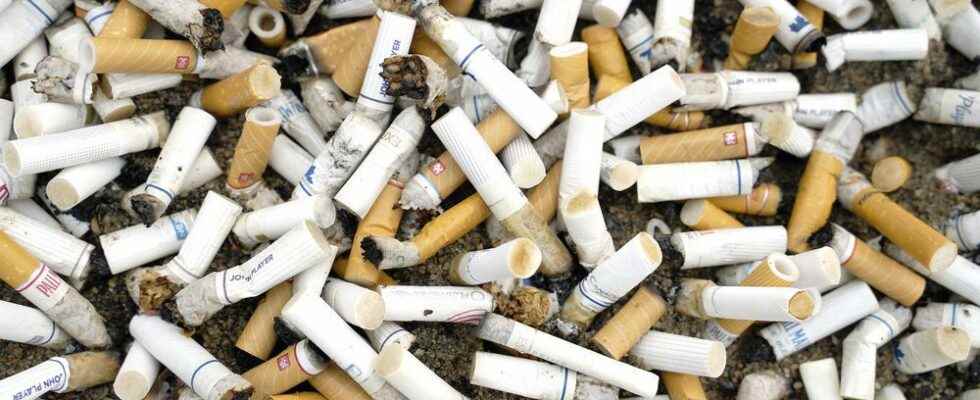Brantford city Coun. John Utley wants to put a stop to cigarette butts being tossed onto streets, in parks and into local waterways.
Utley, a long time proponent of action to keep the city free of litter, said tossing cigarette butts in public places has been socially acceptable for decades.
“Attitudes have to change,” he said.
count. Richard Carpenter agreed.
“It’s disgusting,” Carpenter said during discussion at this week’s operations committee meeting when councilors voted unanimously in favor of Utley’s motion directing city staff to look into ways to stop the practice of people flicking cigarette butts without care.
While helping gather litter on Earth Day in April, Utley said volunteers picked up “hundreds, probably thousands” of butts. Hot spots are outside pubs and restaurants and even outside the entrance to the hospital, he said.
count. Dan McCreary said he has witnessed people dumping “two packs worth” of butts onto store parking lots.
“I don’t understand why someone wouldn’t throw a candy wrapper into the street but they will a cigarette butt,” said Coun. Cheryl Antosky.
Cigarette butts are the most abundant form of plastic waste in the world, with about five trillion of them polluting the global environment.
In February 2020, the United Nations and the World Health Organization announced a partnership to raise awareness about the negative environmental impacts of microplastics in cigarette butts.
Each cigarette contains a filter, mainly composed of microplastics known as cellulose acetate fibres. Butts that aren’t properly disposed of get broken down by sunlight and moisture, releasing microplastics, heavy metals and other chemicals.
According to the United Nations, cigarette butts account for more than 766 million kilograms of toxic trash each year.
Utley’s motion calls for city staff to report back to council in the third quarter of the year with information that includes:
- Recommendations related to the proper disposal of cigarette butts on public and private property.
- Investigation into what actions other municipalities are doing to deal with the discarding of butts.
- Identification of responsibilities of business owners to regularly remove cigarette butts outside their premises.
- A bylaw amendment to urge the business community, especially pubs and restaurants, to install cigarette butt receptacles.
- The cost of a local education campaign with information on how to partner with school boards and post-secondary institutions to extend the reach of the campaign.
“We have a lot of education to do,” said Utley, calling the problem a “generational thing.”
Carpenter said littering of any material, including cigarette butts, is illegal and people can be found. He encouraged people who witness smokers flicking their cigarette butts in public to say something to them.
But McCreary said it’s not responsible to tell people to “get in one another’s face” over the issue.
“People don’t need to lose their teeth over someone flicking a cigarette.”
